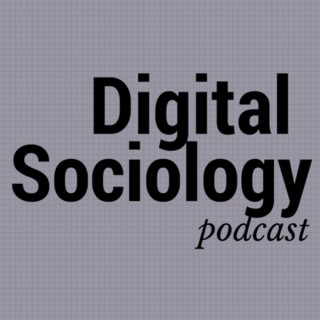Podcast appearances and mentions of penny andrews
- 6PODCASTS
- 6EPISODES
- 34mAVG DURATION
- ?INFREQUENT EPISODES
- Sep 14, 2022LATEST
POPULARITY
Latest podcast episodes about penny andrews
Romance blossoms under the stars in this feelgood love story! Lily Harper is an events organiser, but her neat, ordered world has just exploded. First she lost her job, then she lost her fiancé...Uitgegeven door SAGA EgmontSpreker(s): Penny Andrews
Penny Andrews argues that thinking of political supporters as fans helps explain the current state of politics. Penny is an academic and a serial fan - covering everything from David Bowie to Ed Balls. And in this energetic and witty talk Penny argues that many of the characteristics of fandom elsewhere - a rich interest, a wish to protect the sanctity of the fandom, and a refusal to tolerate criticism - also mark politics and political fans, whatever side they're on. And that understanding politics in this way may help us understand it better. Producer: Giles Edwards
63. VALUING NEURODIVERSITY: how society needs to change
Hello! Today we speak to two autistic people about what the neurodiversity movement is and what it means to them. Penny Andrews and Georgia Harper join us to talk about their personal experience of living with autism, and how our society, employers and all of us can learn to value and benefit from neurodiversity.ANDComedian Jodie Mitchell would like to tech up the fight against men stealing women's ideas, old tinted glasses for those who believe the olden days were better and a ban on incense for anyone who's not using it for religious purposes See acast.com/privacy for privacy and opt-out information.
Digital Sociology Podcast Episode 15:Penny Andrews, library systems, academic social media, Ed Balls
In what is likely the most fun episode I spoke to Penny Andrews. This started out as a chat about Penny’s research into current research information systems, institutional repositories and academic social networking services such as academia.edu. Penny gives some fascinating insights from her research into how people use these systems and the political economy around in which they are integrated. I found it particularly fascinating to hear about how people increasingly have little choice but to use these systems which generate data and enable control of academic life by multinational corporations. Along the way there are some diversions in our chat into the state of academia, the pressures created by systems of measurement, digital capitalism and even Doctor Who and Charlie from Casualty. Warning! This is a wide-ranging chat which I considered cutting down to something more focused but actually the charm of this episode is in the shambolic loose character of it. Penny also tells me plenty about one of her other great passions; Ed Balls gifs! Also, I recorded this about a year ago and it has taken me ages to upload this (sorry Penny) but most of the political diversions we go down are still mostly pertinent which perhaps says a lot about the state we're in. Penny has written about her fandom for Ed Balls and her role as the worlds most prominent producer of Ed gifs and read some of her articles on higher education and metrics at Wonkhe https://discoversociety.org/2017/07/05/every-day-can-be-ed-balls-day-in-uk-politics-fandom/ https://wonkhe.com/staff/penny-andrews/ You can follow Penny on Twitter @pennyb
Episode 87 - Tiernan looks at the collapse of Carillion, there's a bit of Brexit, some loneliness, a teaspoon of trepanning for some reason and an excellent chat with Penny Andrews (@pennyb) on the ins and outs of political fandom.Donate to the Patreon at www.patreon.com/parpolbroBuy me a coffee at https://ko-fi.com/parpolbroFollow us on Twitter @parpolbro, on Facebook at https://www.facebook.com/groups/ParPolBro/ and the webpage at http://www.tiernandouieb.co.uk/podcast See acast.com/privacy for privacy and opt-out information.
John Harris, of the Guardian, talks to Penny Andrews, a university researcher, who, after a difficult childhood and adolescence was finally diagnosed as autistic in her early thirties. John is known for having two consuming passions music, and politics - and luckily he's developed a career that revolves around both. But around five years ago, he acquired a third area of expertise and curiosity: autism. His son James was born in 2006 and, when he was 3, it was discovered he was autistic. For John and his partner, the next two or three years passed in a blur of educational therapy, tussles with officialdom, James's successful entry to a mainstream school, and reading: lots and lots of it. In his first edition of One to One, John talked to Simon Baron-Cohen, Professor of Developmental Psychopathology at Cambridge University and Director of the University's Autism Research Centre. Today he talks to Penny about how the condition has affected her life and how she has learnt to live with it, holding down an intellectually challenging job and married life. They discuss how schools and employers can help those on the autistic spectrum make the most of the gifts and talents they have and understand better the more challenging aspects of the condition. Producer: Lucy Lunt.









